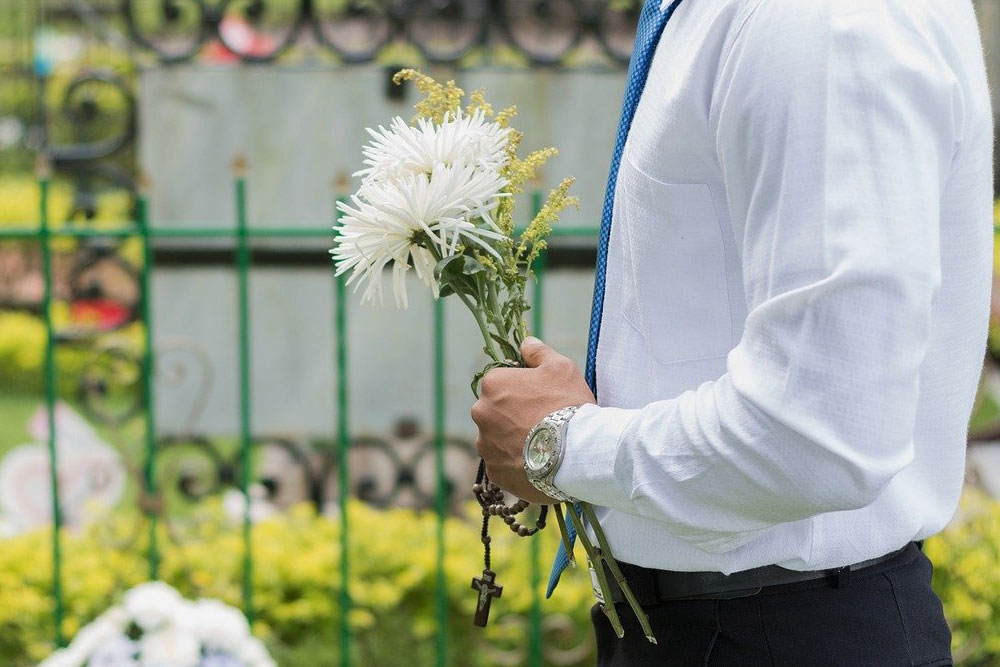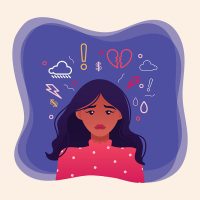The Loneliness Of Grief
Published on April 14th, 2021
Updated on January 8th, 2024

Grief is a powerful feeling that deeply affects people who are experiencing loss. It can manifest in many ways, and cause feelings of loneliness and isolation from friends and family. People who are grieving often pull away from friends and family as they learn how to cope with the new void in their lives. Sometimes, people who are grieving may feel that they have lost their primary support system in the passing or loss of a loved one.
They can feel lost and alone, and struggle to cope with their new life without the person they lost. This loneliness can cause people to lash out at or shut out other loved ones in their life, even if those loved ones are trying to show support.
What Causes A Person To Grieve?
Different types of loss can cause a person to grieve. Traditionally, grief applies to people who have lost a loved one due to their passing on. While the death of a loved one is most often associated with grief, a person does not have to die for you to grieve. Many circumstances may cause a grief reaction. Such circumstances include:
Sponsored by

Choose a therapist to work with and start healing with 20% off from BetterHelp.
Click Here- The death or passing of a loved one
- A breakup
- A loss of a friendship
- A major change in lifestyle
- The loss of employment or career
- The passing of a celebrity
- The loss of mobility or physical wellness
- A change in financial status
- The change of family dynamic due to divorce or separation
- The loss of a missing person
- The loss of health or longevity of a loved one
- The loss of memory or development of dementia in a loved one
- A phase of life transitions and changes
- The realization that someone is not who you thought they were
- The loss or passing of a pet
- The inability to start or grow a family due to fertility issues
How Does Loss Lead To Loneliness?
The degree of loneliness a person may feel after a loss varies depending on their circumstances. It will depend on their personality, previous history with loss, and how they develop coping skills. People who are already emotionally vulnerable may feel the effects of the loss more intensely than someone who is more self-aware and resilient. People who are insecure and have low self-esteem also may be more susceptible to feelings of loneliness. Emotional vulnerability and low self-esteem can both prevent a person from properly reaching out for support.
They may feel uncomfortable with asking for support from others or ask in ways that cause tension in relationships. This can lead to self-isolation, as such people feel like nobody can understand them. It leads to them feeling alone while they grieve.
Loneliness After The Loss Of A Loved One
The loss of a person will cause a different grieving experience than the loss of a circumstance, object, lifestyle, or pet. The intensity of loneliness a person feels after a loss also depends on the relationship they had with the person they lost. If the person who is grieving had a strong connection or bond with who they lost, it can trigger deep feelings of loneliness and despair.
People who had strained relationships with a lost loved one may also develop deep feelings of loneliness. Such people will have a more unique experience of grief and loneliness, as it may feel like there is unfinished business or a failure to make or mend a bond before the person was lost. The unfinished business can be overwhelming for a person, and they may withdraw from friends and family as they cope with feelings of guilt and grief. People who lost a loved one before a relationship could be mended may also feel unworthy of the support of others at times. They may also struggle with feeling unwilling or unsure of how to process and heal from their guilt and grief.
How To Cope With The Loneliness
The loneliness that can come with loss is overwhelming. It is a powerful feeling and one that can be difficult to overcome. Each person will self-isolate and withdraw from others for their own reasons. Often, it is a matter of not understanding what they need to ask of others to feel supported. It may also be due to a feeling of despair, or a feeling of hopelessness to ever recover from the loss.
Even the most lonely of people who are grieving can feel supported by others if they ask for it. A major pitfall to avoid when feeling lonely while grieving is waiting for others to come to you. If you wait for others to approach you with their support, you may set yourself up for disappointment and discouragement from reaching out, which will only deepen your feelings of loneliness. If you feel you need support while grieving, reach out to friends and family. Even if you do not know what you need from the people who love you, just hearing that they are there for you can make a difference.
If you find yourself struggling to reach out to people close to you, or feel that you do not have anyone close to you who will support you, consider reaching out to support groups. Support groups can be a great way to feel less lonely while grieving. A support group can help you be introduced to others who have similar feelings and experiences as you do. This type of support can help you feel like you are not alone, and the members of the support group can offer insight based on their own experiences, and provide you with tips on how to manage your grief.
If you feel intimidated by reaching out to a support group, or feel it is not a good fit for you, you may also consider reaching out to a mental health professional. He or she may be able to guide you through a grieving process and support you so you do not feel so alone anymore.
Sponsored by

Find an affordable therapist online with 20% off from BetterHelp.
Click Here






Leave A Reply